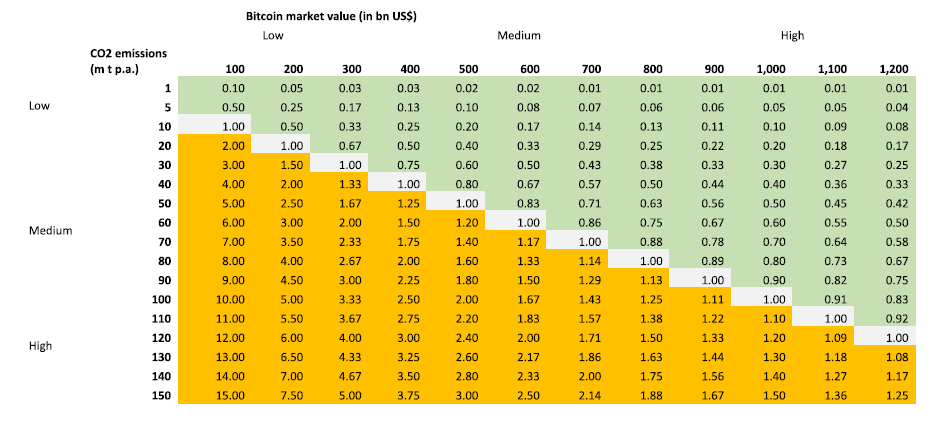The stock market is more harmful to the climate than BTC
3 min readIt is such a thing with the carbon footprint of BTC. While the power consumption of the world’s largest decentralized network can be determined quite easily, estimates of CO₂ emissions are far worse. After all, mining is a decentralized organized process. Depending on where the mines are located, the companies use different energy sources for hashing. In addition, the miners do not like to be looked at; it is therefore not known exactly whether the majority of the electricity used to secure the network comes from renewable or fossil energy sources.
Expressed in numbers: According to data from Cambridge BTC Electricity Consumption Index BTC consumes 127.98 TW/H of electricity. This statistic results from actually publicly accessible data such as the mining difficulty, the hash rate and the common mining devices and their energy efficiency.
CO₂ balance is a mystery
The situation is different with the CO₂ balance; here you have to rely on estimates from science. So come the scientists Krause and Tolaymat to the conclusion that BTC only emits 1.2 to 5.2 megatons of CO₂ per year. At the other end of the spectrum is the estimate of Jiang et. al which has CO₂ emissions of no less than 130.50 Mt per year.
However, and this is crucial, these numbers have so far only been treated in absolute terms in the literature and have not been set in relation to BTC’s market capitalization. However, measuring the so-called carbon intensity is actually standard when assessing the ecological footprint of assets. For comparison: companies that are summarized in the world’s most important stock index, the S&P500, emit 3,000 Mt CO₂, many times that of BTC – but also have about fifty times the market capitalization.
BTC can improve the portfolio’s carbon footprint
In a paper published in November last year, the authors Dirk Baur from the University of Western Australia and Josua Oll from the University of Oldenburg do just that: They compare BTC CO2 emissions to its market value. And what’s more: In the paper, the authors compare the climate impact of a USD 10,000 BTC investment with that of an equivalent share investment. Lo and behold: Depending on the CO₂ estimate, adding BTC can even reduce your own CO₂ footprint.
This is evident from the spreadsheet below.

intensity perspective.” https://doi.org/10.1016/j.frl.2021.102575
In all fields with a green background, adding BTC to the portfolio reduces the ecological footprint. The values in the orange part of the table represent an increase in CO₂ emissions through BTC diversification – depending on how much CO₂ BTC actually emits.
“The table says that according to this data, investing money in BTC has only 50-60 percent of the climate impact of investing in the S&P500,” writes Stefan Richter, head behind Netpositive.money an initiative that deals with a fact-based discussion of BTC’s energy problem.
Stock index more harmful than BTC
The study makes an important contribution to the climate debate surrounding BTC, as it compares BTC’s market capitalization to CO₂ emissions for the first time. It also shows that traditional investment strategies often do more damage than BTC investments.
I believe that for many people […] BTC is primarily an investment. The article makes it clearer that investments always have externalities and creates a comparison with a standard investment, especially for the climate impact. In view of the prevailing sentiment in the media and society, I find it very surprising that, according to the best available data, BTC is probably less harmful than a broad stock index.






